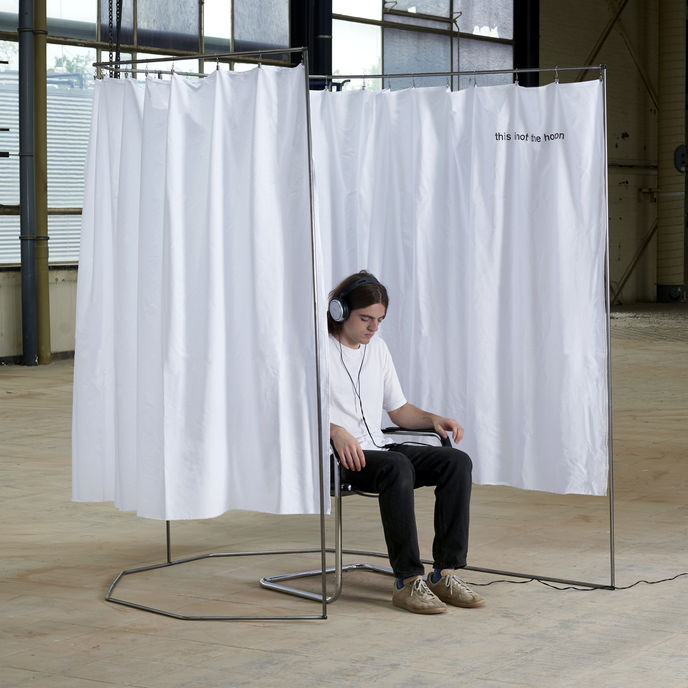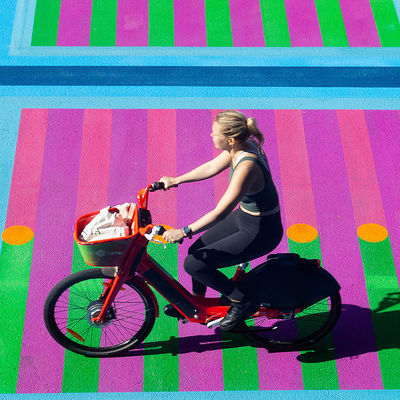21 : 10 : 22 : Weekly Debrief
This week: The impact of beauty standards on health, a deepfake-powered podcast, Argos says no to the neutral home trend, a colourful makeover for European cities, and solar-powered coffee
1. Dove tracks the impact of beauty standards on health
US – Commissioned by Dove, The Real Cost of Beauty Ideals report reveals the societal and economic impacts of harmful beauty standards.
Unattainable and ever-changing beauty standards are fuelling a public health crisis, with women and young girls the most affected demographic, according to Dove's latest report. Its research quantified the cost of beauty standards – a metric never used before. The results are alarming. In the US, the epidemic of body dissatisfaction incurs financial and wellbeing costs of £272bn ($305bn, €313bn) per year, and appearance-based discrimination a whopping £447bn ($501bn, €514bn) each year.
Alessandro Manfredi, chief marketing officer at Dove, says: ‘Beauty standards are not superficial. They have a human and financial cost that we must address, so that a positive relationship with beauty can be accessible to all.’
This comprehensive assessment of the pervasive and damaging impacts of beauty standards is designed to encourage systemic change against racist and gendered beauty ideals, pushing forward the goals in our Synchronised care report.
 This Is Not the Horizon by Anne-Iris Espinat Dief, The Netherlands
This Is Not the Horizon by Anne-Iris Espinat Dief, The Netherlands
2. A deepfake-powered podcast features interviews that never were
Dubai – There is a new addition to deepfake technology’s list of use cases – podcast.ai is creating podcast episodes based on conversations between AI-generated digital personas of public figures.
Although deepfakes pose ethical and moral concerns for some, the technology’s applications in the media landscape are multiplying, such as a TikTok account featuring an AI-generated version of actor Keanu Reeves that confused many users.
Podcast.ai introduces a new way to utilise deepfake technology, programming AI systems to emulate two celebrities and have them record a podcast on a set theme.
The first episode features a deepfake of Joe Rogan interviewing a deepfake of Steve Jobs, discussing an array of topics including tech, faith and drugs, for 20 minutes. Podcast.ai plans to release weekly episodes, and invites listeners to suggest topic and host ideas via an open-source forum.
Deepfakes entering the podcast space suggest that the Digital Fandom Market has many untapped possibilities to offer for brands willing to experiment.
3. Argos launches campaign to stop the neutral home trend
UK – Minimalist grey and beige aesthetics dominate home interiors, which Argos hopes to change with the help of AI. The retailer’s new campaign, Make Yourself, At Home, will feature a series of YouTube videos helping families to decorate their homes in styles that reflect their personality.
The videos will advise on banishing ‘greige’, using AI tracking technology that collects data on emotional responses to a variety of products shown to families. The data collected is used to give each of the families a makeover, based on positive responses to items shown.
The aim is also to help people make decisions when faced with the endless choice offered in Argos’s home range. ‘There are so many different ways to style a home, it’s no wonder people get a bit of choice paralysis,’ explains Rob Quartermain, Argos head of marketing and brand communications.
With consumers increasingly fashioning their own Avant Abodes, the campaign taps into the rise in working from home and the desire to invest more in the home.
4. European cities are given a colourful makeover
Global – The Asphalt Art Initiative is partnering with cities across Europe to help improve community safety. The project consists of colourful murals placed on pavements and along roadsides in 19 countries. Cities in Belgium, Italy and Bulgaria are among those that will receive the £22,100 ($25,000, €25,400) grant, some of which will be given murals across intersections and crossings.
Supported by Bloomberg Philanthropies, which previously piloted the project in the US, the initiative aims to help cities use art to rejuvenate public spaces and improve street safety. In the US, driving speeds dropped by 45% in Kansas City, Missouri, after an art installation was introduced at a crash hotspot intersection.
Not only do the murals brighten up communities, they act as a catalyst for improving the general wellbeing of residents. ‘Projects like these not only connect people, but make streets safer, and we encourage cities everywhere to paint their own transportation masterpieces,’ says Janette Sadik-Khan, principal for transportation at Bloomberg Associates. The project is an example of how communities and organisations alike are inventing ways to turn urban spaces into more equitable places.
 Asphalt Art Initiative by Bloomberg Philanthropies, Europe
Asphalt Art Initiative by Bloomberg Philanthropies, Europe
5. This solar-powered device makes coffee without mains power
The Netherlands – Dutch designer Boudewijn Buitenhek has constructed a solar-powered kettle and coffee bean roaster as part of an experiment in which he lived without gas or electricity for a week. As part of his wider studies for the industrial design master’s programme at KABK in The Hague, the project, Living with the Sun, explores the use of solar panels in rented accommodation without roof access. Exploring his curiosity for alternative solar methods, during the experiment Buitenhek found ways to live without mains power, including a method to make his daily coffee.
The kettle and bean roaster were inspired by an 18th-century method that consists of two glass tubes: one traps solar heat, reaching temperatures of over 200°C, and the second converts the heat into energy.
He hopes this will empower people to take the initiative to create solar systems. The devices help to give people a greater understanding of how energy is used in the home. This is further explored in our piece on solar-powered futures.
To future-proof your world, visit The Future Laboratory's forecasting platform LS:N Global for daily news, opinions, trends, sector specific insights, and strategic toolkits.
Want to read more?
Become a member today!
Sign up to one of our trends intelligence platform, LS:N Global and get unlimited access to a hive of insights - from microtrends and macro trends to market reports, daily news, research across eight industry sectors and much more.
Discover our memberships
Already a member? Click here to login
